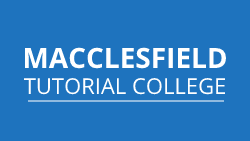The following information is extracted fro the JCQ publication “Access Arrangements and Reasonable Adjustments” (version: September 2017 to August 2018). The publication can be downloaded, in full, from the JCQ website (link below). The full document contains more detailed information relating to each of the available access arrangements.
Access Arrangements
Access arrangements are agreed before an assessment. They allow candidates with special educational needs, disabilities or temporary injuries to access the assessment and show what they know and can do without changing the demands of the assessment. The intention behind an access arrangement is to meet the particular needs of an individual candidate without affecting the integrity of the assessment. Access arrangements are the principal way in which awarding bodies comply with the duty under the Equality Act 2010 to make ‘reasonable adjustments’.
Reasonable Adjustments
The Equality Act 2010 requires an awarding body to make reasonable adjustments where a candidate, who is disabled within the meaning of the Equality Act 2010, would be at a substantial disadvantage in comparison to someone who is not disabled. The awarding body is required to take reasonable steps to overcome that disadvantage. An example would be a Braille paper which would be a reasonable adjustment for a vision impaired candidate who could read Braille. A reasonable adjustment may be unique to that individual and may not be included in the list of available access arrangements. Whether an adjustment will be considered reasonable will depend on a number of factors which will include, but are not limited to:
- the needs of the disabled candidate;
- the effectiveness of the adjustment;
- the cost of the adjustment; and
- the likely impact of the adjustment upon the candidate and other candidates.
An adjustment will not be approved if it:
- involves unreasonable costs to the awarding body;
- involves unreasonable timeframes; or
- affects the security and integrity of the assessment.
This is because the adjustment is not “reasonable”.
-
-
-
- Supervised rest breaks (rest break must always be considered before making an application for extra time)
- 25% extra time
- Extra time of up to 50% (between 26% and 50% extra time)
- Extra time of over 50%
- The use of an examination reading pen
- Braille transcript
- Practical assistant
- Exemptions
- Bilingual translation dictionaries with 10% extra time
Modified Papers
- Braille papers
- Modified enlarged papers
- Coloured/enlarged paper (e.g. A3 unmodified enlarged papers)
- Modified Language papers and transcript of Listening test/video
- Non-interactive electronic (PDF) question papers
-
-
